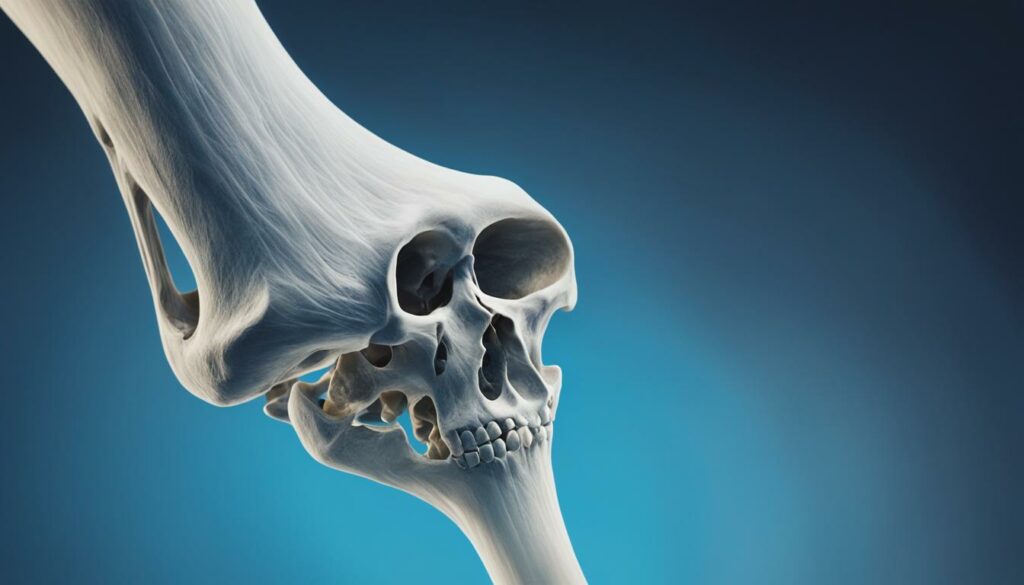Vitamin D and calcium are two essential nutrients that are not only important for overall health, but also play a crucial role in maintaining sexual wellness.
Research has indicated a potential link between vitamin D deficiency and sexual health issues, such as erectile dysfunction and low libido. Additionally, both vitamin D and calcium have been found to have positive effects on sexual performance and satisfaction.
In this article, we will explore the relationship between vitamin D, calcium, and sexual health, shedding light on the benefits of these nutrients and their impact on various aspects of sexual function.
Key Takeaways:
- Vitamin D and calcium are crucial for sexual health and performance.
- Vitamin D deficiency has been linked to erectile dysfunction and decreased libido.
- Calcium is essential for maintaining bone health, indirectly influencing sexual wellness.
- Incorporating adequate vitamin D and calcium through diet or supplementation can enhance sexual function.
- Further research is needed to understand the precise mechanisms behind the relationship between these nutrients and sexual health.
The Role of Vitamin D in Erectile Function
When it comes to sexual health, the role of vitamin D cannot be ignored. Research has shown that vitamin D supplementation is associated with improvements in erectile function, making it an important factor to consider for those experiencing difficulties in the bedroom.
One of the ways in which vitamin D influences erectile function is through its impact on hormone levels. Vitamin D has been found to regulate the production of hormones that play a key role in sexual health and performance. By maintaining optimal hormone levels, vitamin D can contribute to a healthy sexual response.
Furthermore, vitamin D is believed to have a positive effect on the production of nitric oxide, a crucial molecule involved in achieving and maintaining an erection. Nitric oxide helps relax the blood vessels in the penis, allowing for increased blood flow and a firm erection.
By promoting the production of nitric oxide, vitamin D supports healthy erectile function.
The Connection Between Vitamin D and Erectile Response Regulation
“Vitamin D may regulate the erectile response.”
Some studies have also suggested that vitamin D may have a direct influence on the regulation of the erectile response. While research in this area is still ongoing, it is believed that vitamin D may play a role in modulating the process by which erections are initiated and maintained.
Further investigation is needed to fully understand the mechanisms behind this relationship.
Vitamin D is an essential nutrient that can positively impact erectile function. Whether through its effect on hormone levels, nitric oxide production, or the regulation of the erectile response, maintaining adequate levels of vitamin D is crucial for optimal sexual health.

| Vitamin D and Erectile Function | Benefits |
|---|---|
| Regulation of hormone levels | Promotes optimal sexual response |
| Enhancement of nitric oxide production | Improved blood flow for erections |
| Potential regulation of the erectile response | Further research needed |
Calcium and Bone Health
When it comes to maintaining optimal bone health, calcium plays a crucial role. It is an essential nutrient that is responsible for maintaining bone density and strength, making it vital for overall skeletal health and function.
One of the primary concerns related to inadequate calcium intake is the development of osteoporosis. This condition weakens the bones and increases the risk of fractures, posing significant health challenges for individuals, particularly older adults.
Adequate calcium levels are essential throughout life, as it helps in building strong bones during childhood and adolescence, and preventing loss of bone density later in adulthood. Without sufficient calcium intake, bones may become brittle and more prone to fractures.
Calcium supplementation, along with a balanced diet, has been recommended as a preventive measure to maintain bone health and mitigate the risk of osteoporosis. It is especially crucial for individuals who may not be able to meet their calcium needs through diet alone.
The Importance of Calcium for Bone Health
“Calcium is a key nutrient that is essential for building and maintaining strong bones. Without adequate calcium intake, individuals may be at a higher risk for developing osteoporosis and experiencing bone fractures.”
Consuming adequate amounts of calcium helps to support the growth and development of healthy bones. It enables bone remodeling, which is the process of continuous breakdown and rebuilding of bone tissue throughout life.
Without adequate calcium, bone remodeling may be disrupted, leading to weakened bone structure and decreased bone density.
In addition to calcium, vitamin D is crucial for calcium absorption and utilization within the body. It helps to regulate calcium levels, ensuring that bone health is optimized. Combined with vitamin D, calcium supplementation can provide a synergistic effect in maintaining bone strength and density.
Recommended Daily Calcium Intake
The recommended daily intake of calcium varies depending on age and gender. The National Institutes of Health (NIH) provides the following guidelines:
| Age Group | Recommended Daily Calcium Intake |
|---|---|
| Children 1-3 years | 700 mg |
| Children 4-8 years | 1,000 mg |
| Children/Adolescents 9-18 years | 1,300 mg |
| Adults 19-50 years | 1,000 mg |
| Adults 51 years and older (men) | 1,000 mg |
| Adults 51 years and older (women) | 1,200 mg |
It is important to note that calcium is best absorbed when taken in smaller amounts (
Ensuring adequate calcium intake through diet or supplementation, along with regular physical activity, can help support optimal bone health and reduce the risk of osteoporosis and fractures.
The Link Between Vitamin D and Calcium
Vitamin D and calcium have a crucial relationship when it comes to maintaining optimal bone health. Vitamin D plays a vital role in calcium absorption, ensuring that the body can effectively utilize this essential mineral. Without sufficient vitamin D, the body may struggle to absorb calcium, leading to potential deficiencies and impaired bone health.
Calcium is a key component of bone structure and density, and it is essential for maintaining strong and healthy bones. However, simply increasing calcium intake may not be enough if vitamin D levels are inadequate. The body needs sufficient vitamin D to ensure that calcium is absorbed and utilized properly.
To maximize the benefits of both vitamin D and calcium for bone health, it is important to ensure an adequate intake of both nutrients. This can be achieved through a combination of diet, sunlight exposure, and supplementation when necessary.
Including vitamin D-rich foods such as fatty fish, fortified dairy products, and egg yolks, as well as calcium-rich foods like dairy products, leafy greens, and tofu, can help support bone health.
“Vitamin D and calcium work together to support bone health and prevent potential deficiencies.”
In addition to their individual roles, vitamin D and calcium also work synergistically to support overall health. In addition to their impact on bone health, both nutrients have been linked to various other physiological functions, including immune function, muscle function, cardiovascular health, and even mental well-being.
It is important to note that while vitamin D and calcium are integral for bone health, it is always advisable to consult with a healthcare professional to determine the appropriate intake for your specific needs and circumstances.

The Role of Vitamin D in Calcium Absorption
Vitamin D plays a critical role in calcium absorption. When vitamin D levels are sufficient, it helps facilitate the absorption of calcium from the intestines into the bloodstream. This allows calcium to be transported to various parts of the body, including bones, where it is needed for proper bone formation and maintenance.
Without sufficient vitamin D, the body may struggle to absorb an adequate amount of calcium, even if an individual has a high calcium intake. This can lead to potential deficiencies and compromised bone health. Therefore, ensuring sufficient vitamin D levels is essential for optimal calcium absorption and utilization.
In addition to its role in calcium absorption, vitamin D also helps regulate calcium levels in the blood, preventing them from becoming too high or too low. It works in conjunction with other hormones, such as parathyroid hormone (PTH), to maintain calcium balance in the body.
Overall, vitamin D and calcium form a vital partnership in promoting optimal bone health. Adequate intake of both nutrients, whether through diet, supplementation, or a combination of both, is essential for maintaining strong and healthy bones.
The Impact of Vitamin D and Calcium on Sexual Function
Studies suggest that vitamin D and calcium may have a positive impact on sexual function, enhancing sexual satisfaction and desire. Higher levels of vitamin D have been associated with improved sexual function, including erectile function, orgasmic function, and overall sexual satisfaction.
Adequate calcium intake has also been linked to sexual wellness, potentially enhancing sexual desire and satisfaction.
Vitamin D plays a crucial role in various physiological processes related to sexual function. It aids in the production of sex hormones, such as testosterone, and may also improve the synthesis of nitric oxide, a molecule that helps relax blood vessels and promote blood flow to the genital area, facilitating erectile function.
Moreover, vitamin D deficiency has been linked to decreased sexual desire and satisfaction.
Adequate calcium levels are integral to overall health, including sexual wellness. Calcium is essential for muscle function, including those involved in sexual response. It also promotes the release of neurotransmitters that enhance sexual desire. Thus, ensuring sufficient calcium intake can contribute to improved sexual function and satisfaction.
While further research is needed to unravel the precise mechanisms underlying the relationship between vitamin D, calcium, and sexual function, current evidence suggests a potential role for these nutrients in enhancing sexual health.
Incorporating foods rich in vitamin D and calcium, such as fatty fish, dairy products, leafy green vegetables, and fortified foods, into your diet can help support sexual wellness.
Overall, maintaining optimal levels of vitamin D and calcium may positively impact sexual function, enhance sexual satisfaction, and promote sexual desire.
It is important to note that sexual health is influenced by various factors, and a holistic approach that includes a balanced diet, regular exercise, and other lifestyle factors is essential for sexual well-being.
Conclusion
In conclusion, maintaining sexual health is crucial for overall well-being, and vitamin D and calcium can both play significant roles in this area. Adequate levels of vitamin D have been associated with improved erectile function, highlighting its importance for sexual performance.
On the other hand, calcium is essential for bone health, which indirectly impacts sexual wellness. Incorporating sufficient amounts of vitamin D and calcium through diet or supplementation can potentially contribute to a healthier sexual life.
Studies have shown that vitamin D deficiency may be linked to erectile dysfunction, emphasizing the need to ensure optimal levels of this nutrient. Additionally, calcium deficiency can lead to weakened bones, affecting overall physical health, including sexual function.
By addressing any deficiencies and maintaining appropriate levels of both vitamin D and calcium, individuals may improve their sexual health and well-being.
However, it is important to note that further research is needed to fully understand the precise mechanisms behind the relationship between vitamin D, calcium, and sexual function.
Additionally, consulting with healthcare professionals regarding individual dietary needs and possible supplementation is advised to ensure optimal sexual health. Taking proactive steps to maintain adequate levels of vitamin D and calcium can have positive effects on sexual performance, libido, and overall sexual wellness.
FAQ
Can vitamin D and calcium improve sexual health?
Yes, several studies have suggested a possible link between vitamin D and calcium and sexual health. Both nutrients have been found to have positive effects on sexual performance, erectile function, libido, and sexual satisfaction.
Can vitamin D deficiency affect erectile function?
Yes, vitamin D deficiency has been associated with erectile dysfunction. Vitamin D plays a role in hormone regulation and the production of nitric oxide, which is important for achieving and maintaining an erection.
How does vitamin D impact erectile function?
Vitamin D is believed to positively influence hormone levels and nitric oxide production, both of which are important for erectile function. It may also regulate the erectile response. However, further research is needed to fully understand the mechanisms behind this relationship.
Why is calcium important for bone health?
Calcium is crucial for maintaining bone density and strength. Adequate calcium intake helps prevent conditions like osteoporosis, which can lead to weakened bones and an increased risk of fractures.
Can vitamin D help with calcium absorption?
Yes, vitamin D plays a crucial role in calcium absorption. Without sufficient vitamin D, the body may struggle to absorb calcium, leading to potential deficiencies and impaired bone health.
How do vitamin D and calcium impact sexual function?
Higher levels of vitamin D have been associated with improved sexual function, including erectile function, orgasmic function, sexual desire, and overall sexual satisfaction. Adequate calcium intake may also enhance sexual desire and satisfaction.
How can I ensure adequate intake of vitamin D and calcium?
You can incorporate adequate levels of vitamin D and calcium through a balanced diet rich in foods like fatty fish, fortified dairy products, leafy greens, and supplements if necessary. Consult with a healthcare professional to determine the right dosage for you.
Are there any side effects of vitamin D and calcium supplementation?
While vitamin D and calcium supplementation is generally safe, it’s important to follow recommended dosages. Excessive intake of either nutrient can lead to adverse effects such as constipation, stomach upset, and kidney stones. Consult with a healthcare professional for personalized advice.




